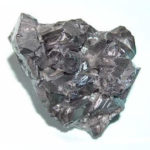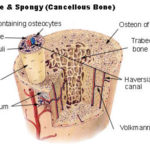By Ben Fuchs | Pharmacist Ben
Last post we discussed all the ways zinc and the lack of it can affect the body. Skin clarity, bone health and immune system integrity are just some of the ways this essential nutrient can impact health. Taking a daily 50mg dose of zinc can help prevent and reduce the duration of colds (as I write this post, there’s a television commercial running that promotes the use of a cold remedy called “Cold-Eeze” which contains a small amount of zinc gluconate), eliminate acne and improve eczema. Zinc’s powerful hormone balancing properties can help improve prostate health and prevent male pattern baldness. And zinc is important for the health of sperm cells and may improve male fertility. All in all, zinc is important for hundreds of different biochemical reactions; this stuff is amazing!
 That’s what I mean when I talk about the importance of nutritional supplementation. Think about the leverage here: one little pill with 50mg of Zinc in it (about the amount of zinc that would fit on the head of a pin) can control and stabilize and spark several hundred chemical processes in the body. Now that is some serious clout!
That’s what I mean when I talk about the importance of nutritional supplementation. Think about the leverage here: one little pill with 50mg of Zinc in it (about the amount of zinc that would fit on the head of a pin) can control and stabilize and spark several hundred chemical processes in the body. Now that is some serious clout!
And, the most incredible part is how little 50mg of zinc costs. What would you expect to pay for a (magic) pill that could keep hair on your head, cure your acne, strengthen your bones, build your immunity, enhance your digestion, improve the function of your heart and help you think more effectively? And, with no downside when taken as directed. Would you expect to pay 100 dollars for a month supply? It would be worth it! In fact, for all those benefits, 100 dollars a month would be an incredible bargain. Well, surprise, surprise! A 30 day supply of zinc at a health food store will typically cost less than 5 bucks!
You can tell if you’re deficient in zinc by doing the “zinc taste test”. You can use a solution of zinc sulfate and water (available online) or you can place a zinc sulfate tablet on your tongue. If you’re not instantly repelled by a strong metallic taste chances are pretty good that you’re suffering from a lack of zinc.
The best way to get zinc into the body is supplementally in the picolinate and monomethionine forms. These are available in most health food stores, but they are harder to find at drug stores where the typical forms available are zinc gluconate and zinc sulfate. The bio-availability of these cheaper zinc varieties is less than satisfactory and many people find that they can cause nausea or other digestive distress. A good daily dose is 50mg a day and once you get going you can skip a day or two here and there. Interestingly the signs of zinc deficiency (such as acne, hair loss, frequent colds and flues) can be duplicated by taking too much zinc (100mg a day is too much). It’s also important to note than there is an antagonistic relationship between zinc and copper and it’s probably a good idea to take 2 mg of copper with every 50mg of zinc. Look for chelate or glycinate forms of copper which are easily handled by the body.
For those of you who want to try to obtain zinc through diet, in addition to the aforementioned oysters and the Rocky Mountain variety, the best sources include liver, lamb, venison, and sesame and pumpkin seeds. However, it should be noted than even then highest zinc concentration foods provide only 10mg or so per serving.
SUMMARY:
-Zinc deficiency is relatively common.
-It’s important for hundreds of different biochemical systems to work
effectively.
-The zinc taste test can alert you to deficiencies.
-Deficiencies can show up in dozens of different ways including depressed immunity, bone problems, skin rashes, eczema and acne, digestive distress and hormone issues.-The zinc taste test can alert you to deficiencies.
-All you need is a couple cents worth of zinc (50mg a day) to meet your zinc requirements and prevent the signs of deficiency.














